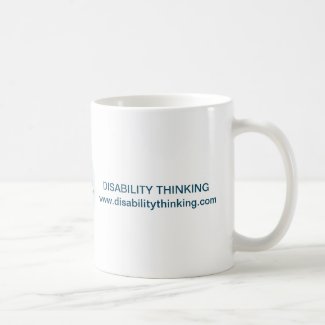Today is Giving Tuesday, which I guess is a special day meant to follow the commercialism of Black Friday, Small Business Saturday, and Cyber Monday, by encouraging people to give to charities. It reminded me of a post I wrote in May, about how to choose a disability-related charity:
Disability Thinking - May 13, 2015
I tried in that post to be fairly neutral on what kind of disability work is most valuable, and instead focused on effectiveness and simply being aware of what kind of disability-related goals you want to support. In other words, I didn’t really make any value judgments. Today I’m going to go ahead and talk about what kinds of disability work I value, and why.
There are four main kinds of non-profit disability work I will list them in order of my personal preference.
Advocacy and Policy
- Helping disabled individuals fight discrimination, improve physical accessibility, and navigate bureaucratic barriers.
- Shaping all kinds of policies, regulations, and laws in ways that expand opportunities and make life better for disabled people.
Advocacy and Policy are my top priorities. I believe that most of the problems disabled people face are systemic rather than personal, and that making better policies and practices regarding disabled people does the most long-term good for the most people. It also happens to fit my personality, which is unsentimental and analytical, so I just "like" advocacy and policy wonkery more!
Services and Support
- Helping disabled people solve everyday problems directly and indirectly related to their disabilities.
- Providing disabled people with the financial support, technology, and direct personal assistance to achieve and maintain their independence.
Services and support address individual needs, especially when they are tailored to each person's situation and directed as much as possible by the person using the service. I feel it is important to support these services because individuals should not have to wait for that perfect accessible world in order to enjoy independence and fulfillment. I'm not into fancy, elaborate programs, and I'm dead set against segregated, sheltered ones. But certain basic services, like income support and home care, are massively valuable.
Awareness
- Informing people about disability issues and the experience of living with disabilities.
- Increasing social acceptance and reducing prejudice against disabled people.
Although social acceptance is important, and being treated cruelly because of your disability is terrible, I am skeptical about the effectiveness of most kinds of "disability awareness" campaigns. For one thing, I'm never quite sure what, exactly, people mean by "awareness." Disability awareness campaigns also tend to be rather simplistic, setting too low a bar for what it expects from people.
Medical Research
- Learning more about specific medical conditions that produce disabilities.
- Developing therapies and cures that might lessen or cure disabilities.
I value all kinds of scientific research, and in some cases, better therapies and treatments can improve disabled peoples' everyday lives. Too often, though, the search for a "cure" seems like a boondoggle. The rhetoric for these campaigns is often so negative about disability itself that they actually make it harder for us to achieve social acceptance. Basic research should be funded objectively, not based on who has the saddest stories, the cutest poster child, or the slickest marketing team.
I'll add one more recommendation, which was also in my May blog post ...
There are few more important principles of the disability community than: “Nothing about us without us.” Whenever possible, support disability organizations led by disabled people, with disabled on their boards, and disabled people in upper management and on service-providing staff. If nothing else, you should seriously question the commitment and relevance of a disability organization that resists or downplays inclusion of disabled people in leadership roles.
----------







